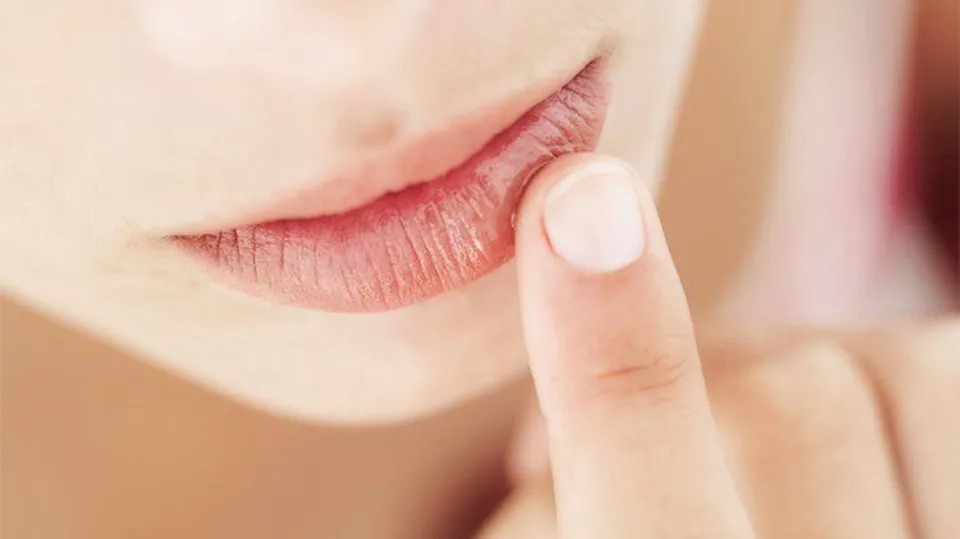
Vaseline for Chapped Lips – Is It Really Work?
All people worry about having dry and chapped lips during the chilly winter months. Your best option in this situation may be Vaseline for Lips, which can smooth out your lips and stop dryness and chapping.
Furthermore, it is typically advised against using items like lipsticks or glosses because they might make the situation worse. Although Vaseline is probably the most popular lip balm, does it actually work? Find out if Vaseline actually helps or just sits on top of your lips in the following paragraphs to learn more.
Is Vaseline Bad for Chapped Lips?
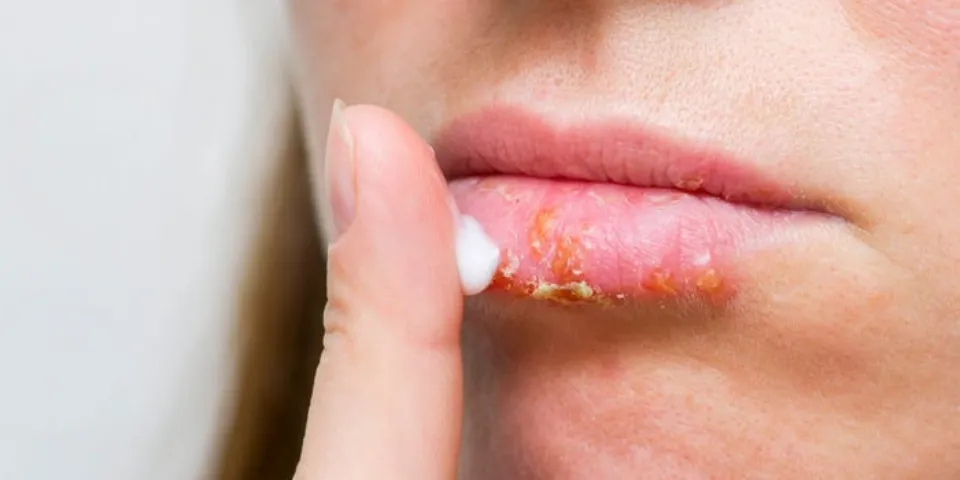
Short answer: No. If you’re referring to petroleum in general rather than a specific brand, it depends on the ingredients used and, to be honest, on your objectives. It matters how you use Vaseline, if you’re specifically referring to it.
Vaseline is an occlusive, a type of moisturizer. Water is held inside by occlusives. They are not humectants, which pull moisture from the air.
Vaseline’s petroleum jelly acts as a barrier to keep moisture from evaporating from your lips and serves as a protective layer. No moisture will be added.
Lips don’t hold onto water well, so licking them before applying Vaseline alone could exacerbate chapped lips. Theoretically, you could get around this by applying a moisturizer first to your skin in order to really hydrate it.
Petroleum jelly may help eczema patients’ skin barriers, according to allergy research. Skin irritation and dryness are reduced by a robust skin barrier.
Read More: Baby Eczema vs. Acne
In summary, you can use Vaseline as part of your skin care regimen without risk, as many people have done for a very long time.
Never forget: You’re looking for refined white petroleum jelly, also known as Vaseline. The use of it externally is generally safe. Simply avoid applying it to delicate areas or inhaling it (it’s not lube). Also, avoid eating it.
You don’t want petroleum jelly that hasn’t been refined. Vaseline is refined, which means that after the petroleum jelly has been gathered, it goes through a procedure to filter out the potentially harmful, cancerous components that people are concerned about.
But this raises another query: Is Vaseline green?
Not really, as it is made from petroleum, a fossil fuel, which is obtained through oil drilling, hardly a long-term sustainable method. Yes, petroleum jelly is a byproduct of this drilling, but oil companies don’t spend billions on it for that reason. But even so, petroleum jelly doesn’t exactly grow on trees.
How to Use Vaseline on Lips
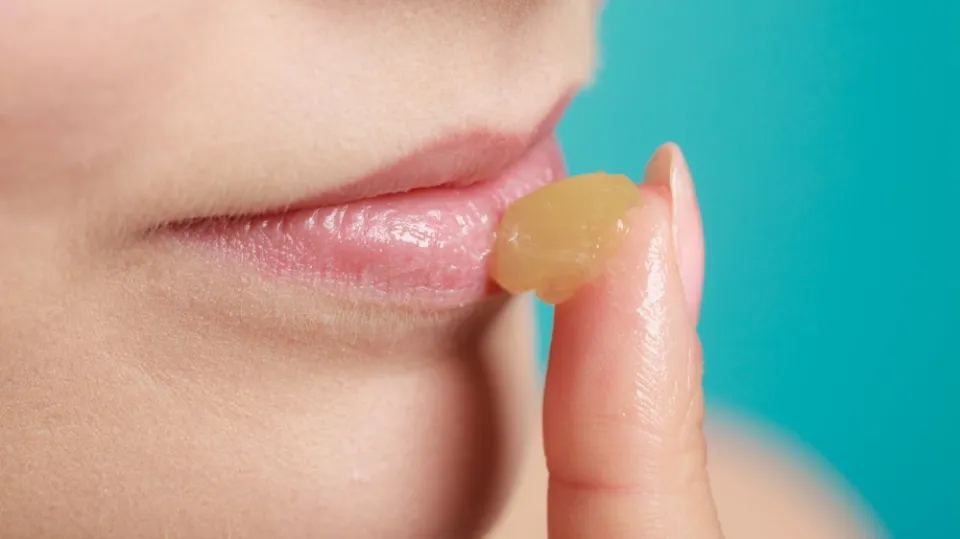
You should refrain from licking or picking the flaky skin when your lips become dry and flaky. Here’s what you need to do:
- To remove the flakes and dead skin on your lips, exfoliate them. Sugar and natural emollients like cocoa butter can be used to create your own exfoliating scrub.
- Moisturize your lips with a soothing moisturizer or lip balm containing hyaluronic acid and ceramides to prevent irritation and further chapping. A natural moisturizer can also be used, such as cocoa butter, shea butter, or coconut oil., to moisturize dry lips.
- Use Vaseline to seal in moisture and keep your lips soft and smooth by coating them in it at the end.
Side Effects of Vaseline on Lips
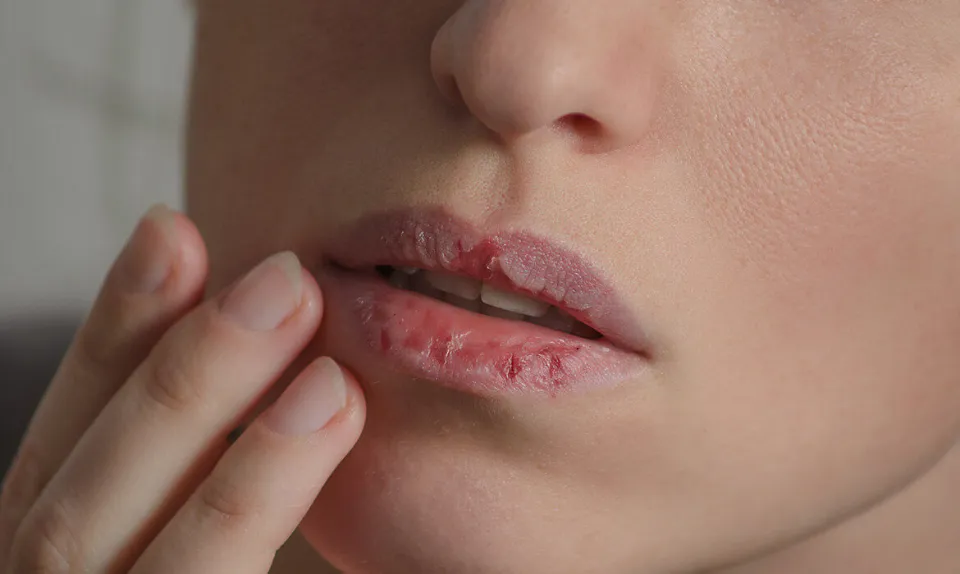
Some side effects of Vaseline include:
- Adverse Reaction
If you have sensitive skin, using products with petroleum ingredients may result in negative side effects like irritation and redness. Because of this, never apply Vaseline to sensitive skin without first conducting a patch test on your arm.
- Infection
If you don’t practice good hygiene before applying petroleum jelly, it could lead to a bacterial or fungal infection. Due to its sticky texture, you might apply it to your lips and spread bacteria or fungi there. As a result, be sure to store your vaseline jar in a spot that is both clean and hygienic. Before applying it to your chapped lips, be sure to properly dry your lips, clean and disinfect your hands, and wash your hands again. - Aspiration Pneumonia
Before applying Vaseline to the area around your mouth or nose, especially if you have children, please consult your doctor. Aspiration pneumonia can result from accidentally breathing in Vaseline. - Clogged Pores
Vaseline can clog pores because it is a comedogenic substance. It’s possible that over time, after using it on your lips, the pores around your mouth will become clogged and unclean. So make sure to thoroughly clean your lips before applying Vaseline. There have been worries about the potential carcinogenic effects of petroleum jelly, mostly due to the way it is made. But petroleum jelly products like Vaseline and others that are sold commercially have been refined and purified to get rid of any potentially cancerous substances.
Is Vaseline Better Than Chapstick?
To keep your lips hydrated and moisturized, apply a chapstick with sunscreen (SPF) and then top it off with Vaseline to stop the moisture from evaporating. The main differences between chapstick and Vaseline are:
- Vaseline is odorless, tasteless, and colorless, in contrast to chapsticks that can be fragranced and flavor-flavored.
- Chapsticks are made with ingredients that help heal dry lips while Vaseline is made of petroleum jelly that has been scented a little to help lock in moisture.
- Chapsticks are only intended for use on the lips, whereas Vaseline can be applied to other body parts (such as the elbows and knees) to relieve dryness.
How to Prevent Chapped Lips
Some of the things you can do to prevent chapped lips are:
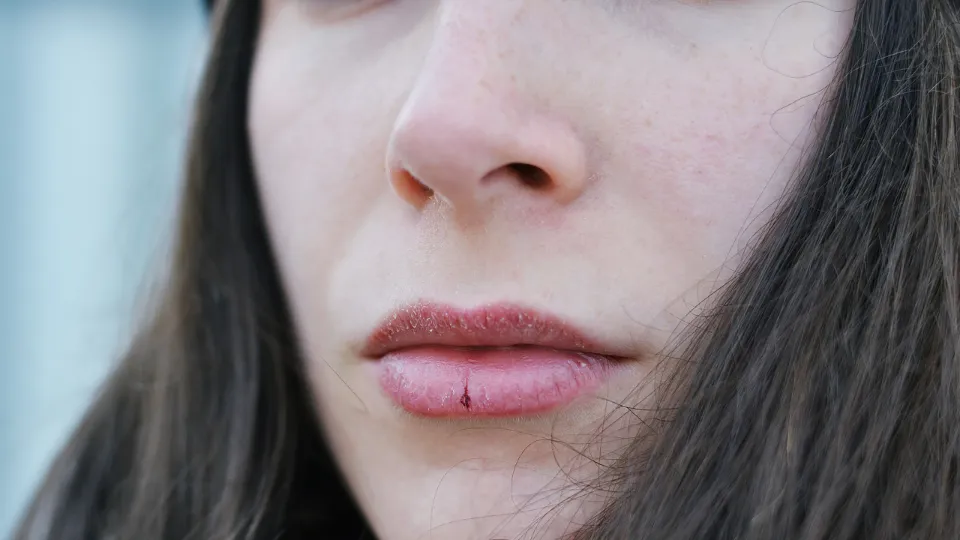
- Avoid using your mouth as a vent. Your lips may become dry and chapped if you breathe through your mouth because warm air is emitted over them.
- When your lips are dry, refrain from continuing to lick them. Although it’s almost impossible to resist, your saliva may make your lips even more chapped and flaky by aggravating the dryness.
- If your lips are dry and chapped, avoid touching them frequently. This may spread germs to their surface and result in an infection.
- To keep your body, skin, and lips hydrated, drink plenty of water.
- Use a humidifier in your room to maintain the ideal humidity level during the winter. Skin drying is a result of trans-epidermal water loss, which occurs when the air is dry. Read More: Ideal Humidity Level for Baby
- Avoid lip products with synthetic dyes and fragrances because they can cause dryness and allergic reactions. Additionally, it is best to stay away from products with preservatives and harsh ingredients like sulfates and parabens because they dehydrate your lips and strip them of their natural oils.
- Since prolonged exposure to the sun can also lead to dryness, use a lip moisturizer or balm with SPF.
- Salicylic acid, menthol, cinnamon, and alcohol are among the ingredients that can irritate and dry out the skin. Keep them out of your lip products.
- The trick is exfoliation. It aids in purging the skin of dirt and impurities to make it smoother.
Conclusion
Vaseline has been used for lips before. It has long been used by people to avoid wintertime cracked and chapped lips. Vaseline will only help lock in the moisture that is already present, so applying it first won’t do your lips any good. You may need to use it in conjunction with other moisturizing items, such as a lip balm, chapstick, or lip mask, to prevent chapping. To learn how to apply Vaseline to your lips effectively, follow the instructions in the article.
FAQs
Is It Okay to Keep Vaseline on My Lips Overnight?
Yes, Vaseline will moisturize and soften your lips if you leave it on them all night.
Can Vaseline Make Lips Pink?
Massaging the lips with Vaseline may promote blood circulation, making your lips naturally pink.
Can I Use Vaseline on My Lips Every Day?
Apply Vaseline to your lips every day to retain their natural moisture and avoid drying out. If you have a product allergy, stay away from doing this.





Average Rating